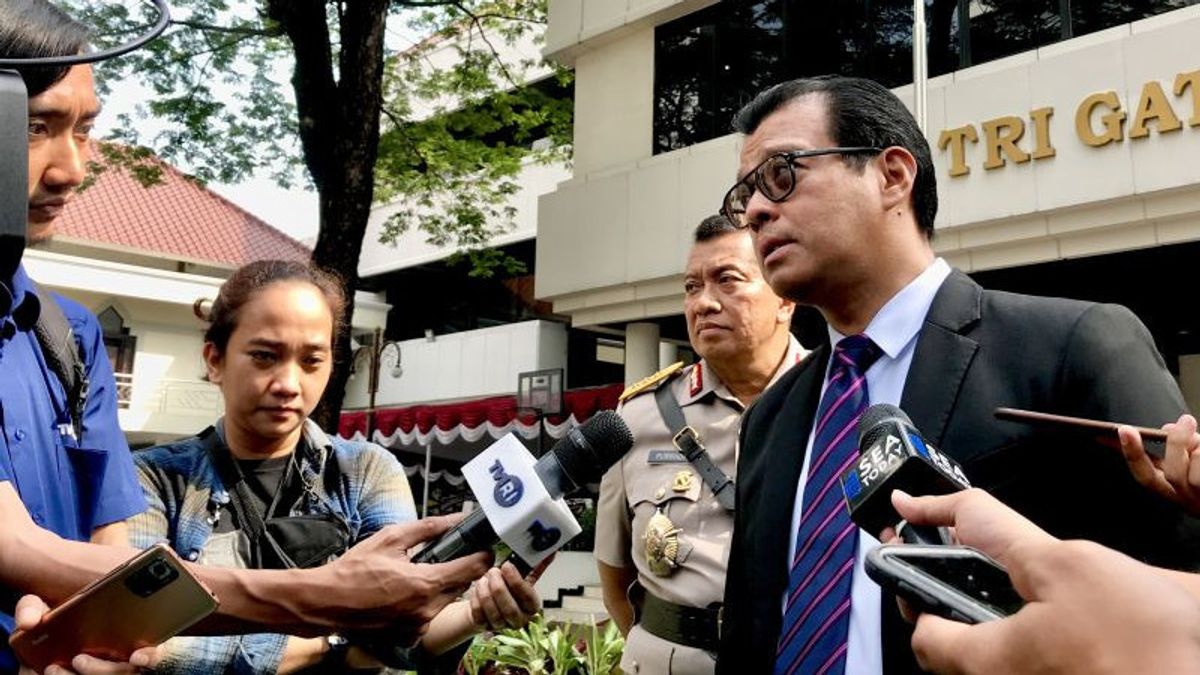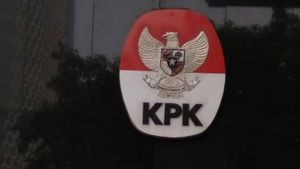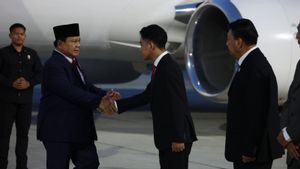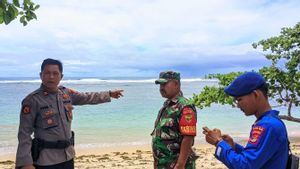JAKARTA - The National Resilience Institute (Lemhannas) has begun to review the discourse on the revision of Law Number 34 of 2004 concerning the Indonesian National Army (TNI) in discussion forums (FGD).
Governor of Lemhannas Andi Widjajanto explained that there are two variables/topics that are in the spotlight, namely the possibility of changing war characters and civil-military relations within the framework of democratic consolidation.
"We just started the study this afternoon, the focus group discussion will be regarding the revision of the TNI Law. What we are reviewing, first, is whether there has been a change in the character of war, if the character of war is usually studied whether there is a new type of threat, is there new technology, if these two answers are indeed changes in the character of war, then the first one is adapted to the doctrine of defense and military," said Governor Lemhannas, quoted by ANTARA, Tuesday, May 23.
The next stage, said Widjajanto, is that if the doctrine of defense and military is believed to change because the character of the war changes, then the regulations must be tested.
"Do the regulations match the new doctrine," he said.
The second variable became the topic of FGD discussion (focus group discussion), Andi said, related to civil and military relations which are currently also regulated in the TNI Law.
"The second thing that we are safe to study is whether there is a change in the quality of civil-military relations in Indonesia in the context of democratic consolidation. In the past, the Defense Law, the TNI Law in 2002, 2004, was made to anticipate changes in civil-military relations from authoritarian countries during the New Order era became a democratic country," said the Governor of Lemhannas.
He conveyed that related, Lemhannas together with experts, representatives from the Ministry of Defense, and the TNI Headquarters (Mabes) needed to test applicable regulations.
"Regulation must be tested, for example, how is the relationship between the president, the DPR, the minister of defense, the TNI commander, and the chief of staff. Can this be strengthened for the consolidation of our democracy," said Widjajanto.
SEE ALSO:
According to him, if there is a change in civil-military relations, which will later be discovered during the FGD, it is necessary to review further the placement of TNI soldiers in civil organizations/institutions which are currently regulated in Article 47 of the TNI Law.
Another relationship that you want to study is how the TNI carries out its duties, military operations, and then it remains relevant to the needs of current institutional changes as (regulated) Article 47. Article 47 only regulates the placement of (active soldiers) of the TNI in 10 organizations, while civil organizations or institutions change rapidly from 2004 to 2023," said Widjajanto.
Several civil institutions/institutions formed after the TNI Law were passed and applicable, including the Presidential Staff Office (KSP), the Coordinating Ministry for Maritime Affairs and Investment, the Maritime Security Agency (Bakamla), the National Disaster Management Agency (BNPB).
"In Article 47 at that time there was no KSP, Coordinating Ministry for Maritime Affairs and Investment, KKP, Bakamla, BNPB. At that time there was already a border task, but the national border agency had not been integrated with the Ministry of Home Affairs," he said.
Therefore, Lemhannas also invited experts, representatives from the TNI and the Ministry of Defense to discuss the topic whose results will later be used to test the TNI Law which is currently in effect.
The discourse on the revision of the TNI Law has been rolling since last month when the TNI Legal Development Agency presented several proposals for a draft amendment to the TNI Law to the TNI Commander.
However, the discussion is still within the Indonesian National Armed Forces Babinkum and has not yet been completed.
TNI Commander Admiral Yudo Margono on the sidelines of the activity in Jakarta Monday (15/5) said the TNI would have a meeting with Defense Minister Prabowo Subianto to discuss it.
He conveyed that the revision of the TNI Law was needed to adjust aspects that are no longer relevant to the development of existing situations, while for things that are still relevant, it will be maintained in the revised law.
The English, Chinese, Japanese, Arabic, and French versions are automatically generated by the AI. So there may still be inaccuracies in translating, please always see Indonesian as our main language. (system supported by DigitalSiber.id)
















